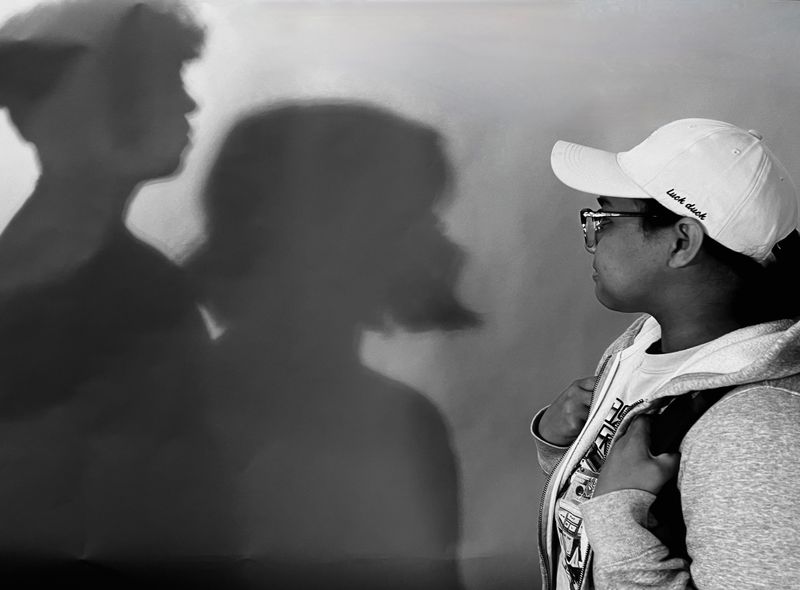We Are America
New Experiences
By Juliene

Lowell High School, Lowell, Massachusetts
It was a hot, humid afternoon when I arrived at the Philippines airport. This was only my second time visiting the Philippines. I was about nine years old. I remember the airport was very crowded, I held onto my dad and my brother's hands tightly, not wanting to let go. Outside, my relatives, who I had met through the phone, are waving. Still sleepy from the flight, we greeted each other, but I barely understood what they were saying in Tagalog. We drove two hours to my grandparents' house in the province of Baguio. The roads were bumpy and zig-zaggy. I saw many colorful houses, jeepneys, taxis, and people walking. At the house, dogs were running around barking, people sitting and chatting with one another outside. My cousins, who I barely remembered, greeted us with food.
We had come to the Philippines for my grandfather’s funeral. At his house there was a room where I could see my grandfather, many flowers and candles around the casket. Two days later, we buried my grandfather. My relatives carried my grandfather to a limo. Many many people, including relatives, followed the car. I held onto my mother’s and brother's hand while we walked. It was hot and humid. Sweat was running down my neck. I didn’t really understand what was happening yet, but I had this feeling of sadness. At the graveyard, I felt two tears run down my cheek. After people read their messages, they closed my grandfather’s casket and lowered him into the ground. People threw down flowers in respect. In the evening, my family held a feast serving lechon, lumpia rice, and so much more.
After my grandfather's funeral, we planned to stay two months to keep my grandma company. I was really excited because I enjoy traveling and exploring new places. Weeks later, while eating dinner, my mom told me that my brother and I would be going to school here in the Philippines. Now I was confused as to why I had to start school. I was scared and worried that I wouldn’t do as well as I do in the United States, or that I wouldn’t make friends, or that I wouldn’t understand the teacher because I wasn’t fluent in Tagalog.
The first three weeks of my new school, my grandma and I would ride the jeepney to school. She showed me how to signal the driver to stop by saying, Para or hitting the roof of the jeepney. I was scared to say the phrase or hit the roof, I thought that the drivers wouldn't hear me. At school, my new classmates talked in Tagalog. I didn’t fully understand. During recess, I would watch kids play in the field. I was shy to greet them and that made me feel like I couldn’t play with them.
In the beginning, I had a hard time making friends. But after a month of school, I found one of my grandma’s friends' daughters who also went to school there. She made me feel comfortable and she introduced me to her friends. I was happy I had friends that I could hangout with. During breaks, we would go and buy snacks at the tindahan (small store). My grandma would bring her homemade lunch for me to eat, sinigang or shanghai lumpia.
As time went on, I began to understand and almost became fluent in speaking Tagalog. I became less shy and made more friends. After school I would eat with my grandma. On the weekends, my family sometimes would go to beaches, or go to their hometown Abra and Pangasinan. Over time I got closer with my cousins and even met other cousins I’ve never met before.
I grew to feel really happy in the Philippines because I got to experience many new things. It was challenging being in a new environment and learning a new language. But over time, I got to learn and grow from that. Meeting new people and cousins made me feel welcomed and the time I had with my grandparents I will never forget.
© Juliene. All rights reserved. If you are interested in quoting this story, contact the national team and we can put you in touch with the author’s teacher.